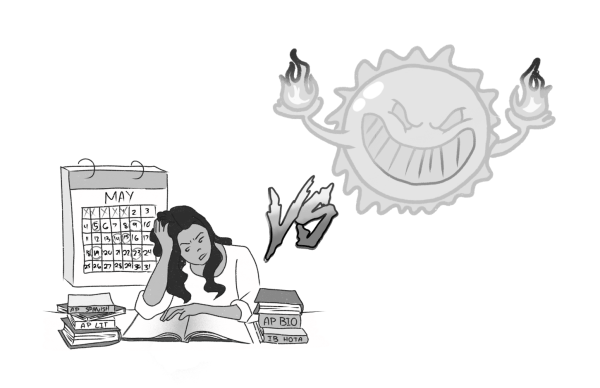Tips for dealing with grief
Mental health has proved to be an important parameter for well-being in today’s world. The damaging impact of poor mental health became prominent in the years of quarantine and social distancing, and still lingers at this moment. Dealing with grief is extremely important from a mental health standpoint, as grief is shown to be a large factor in mental illnesses. According to Mayo Clinic grief is defined as a strong, sometimes overwhelming emotion that stems from the loss of a loved one or from a terminal diagnosis a loved one may have received. Grief is also present during divorces, breakups, retirement, job termination, friendship losses, and even financial instability. It’s safe to say grief is an unavoidable part of the human experience and sooner or later in life, everyone is going to deal with grief and while grief itself is not preventable, there are methods to help cope with loss.
1. “Time heals all wounds” is a commonly heard proverb. And when dealing with grief, time is usually a factor that can help the healing process. According to Mayo Clinic, “mourning can last for months or years but generally pain is tempered as time passes and as the bereaved adapts to life without a loved one, to the news of a terminal diagnosis or to the realization that someone they love may die.”
2. Another great coping mechanism for grief is to open up to a trusted friend or other supportive people like a teacher, parent, or therapist. According to the Cleveland Clinic, friends and loved ones will usually support you through grief by providing company. Claremont High school hosts an anxiety support group which may be helpful to those afflicted by anxiety, a common symptom of grief and sadness.
3. Crying is of the utmost importance when it comes to healing. According to Harvard Health, crying is very important in the coping process, as it may be a sign of you moving forward. Otherwise, holding tears back may be harmful to your emotional and physical health in the long term. As a general strategy, letting your emotions out will usually help you. Whether you are opening up to your friend group or just letting it all out on your own, do not hold it in.
Remember there is no normal healing process and any amount of time a person takes to recover from grief is valid. These tips are based on the advice of professionals but may not work for every one. To access the support groups, therapists, and other resources offered by CHS visit the CUSD secondary school counseling canvas class.
Hello there! Our goal is to provide relavent, engaging journalism for readers of all ages. Your donation will support the student journalists of the Wolfpacket at Claremont High School, and will allow us to purchase equipment, print our monthly issues, and enter in journalism competitions. We appreciate your consideration!

CH Li is a sophomore and Assistant Sports Editor for the Wolfpacket this school year. This year his specific goals for himself in Wolfpacket are to not...









